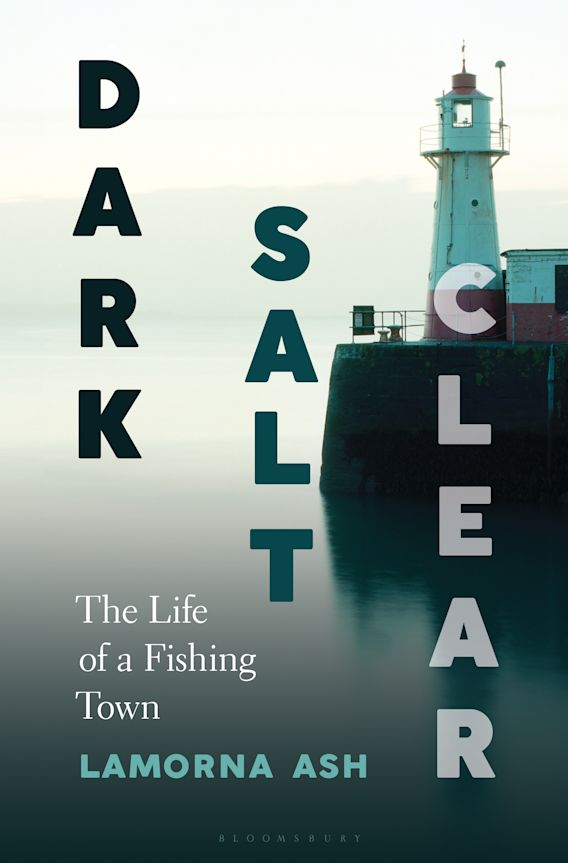My favorite book discoveries are often found nestled amongst travel guides. While guidebooks often shrink small towns into succinct paragraphs, and weigh their significance based on subjective criteria suited for outsiders, I love a book that digs deeper into a place. Dark, Salt, Clear: The Life of a Fishing Town is one of these finds.
Lamorna Ash is a twenty-something Londoner, who ventures to the Cornish coastline to learn about fishing. Although she is an outsider, she has roots in Cornwall. Her mother was raised there and named her daughter for a Cornish village. Lamorna settles in Newlyn, a town centered on the fishing industry, steeped in tradition, but also rapidly changing. The locals quickly welcome her into their lives and workplaces, allowing her access to the various enterprises, including participating in the catch, processing fish, and observing the wholesale auction in an ever changing global market.
Dark, Salt, Clear is not just a story about fishing. It’s about the people, the place, and the complex beauty of it all. Ash peppers her story with poetry and prose from others who experienced the sea and its coastlines. The book’s title comes from the poem “At the Fishhouses” (1947) by Elizabeth Bishop:
“It is like what we imagine knowledge to be:
dark, salt, clear, moving, utterly free,
drawn from the cold hard mouth
of the world, derived from the rocky breasts
forever, flowing and drawn, and since
our knowledge is historical, flowing, and flown.”
Ash is also adept at interweaving her own poetic observations about life and the natural world, and often reflects on the things she learns from the people she meets including captains, deckhands, birdwatchers, fishmongers, processors, barkeeps, and geologists.
“A geologist’s task is to see beyond the ways in which time tries to smooth out difference, examining layers in order to isolate each sift to our world, to feel every fault line. We discuss how hard this is to do this with people, to imagine our lives not as one continuous line, but comprised of hundreds of versions, stacked up behind us, and hundreds more ahead of us too, like those pairs of facing mirrors that make your reflection curl up infinitely on either side of you.”
The book not only explores what it means to work in the fishing industry, but also what it means to live in a place that is so connected to the sea. As a person who grew up in a small coastal town in the Pacific Northwest, I was intrigued to learn about another coastal town across the globe. Books, like travel, can broaden our horizons, but also connect us. People in Cornwall look for the illusive “Green Flash” just like the residents of my hometown. The fishing industry everywhere is effected by globalization and climate change. Small seaside towns struggle with similar issues like tensions between tourism and industry. Fishing families across the globe are impacted by metal health issues, tragedy, and grief.
If you are curious about the natural world and the human experience in a small town across the Atlantic, check out Dark, Salt, Clear. While I picked up a physical copy of this book from my local library, you can also read it as an ebook through the Nebraska OverDrive Libraries.
Ash, Lamorna. Dark, Salt, Clear: the Life of a Fishing Town. Bloomsbury, 2020.


